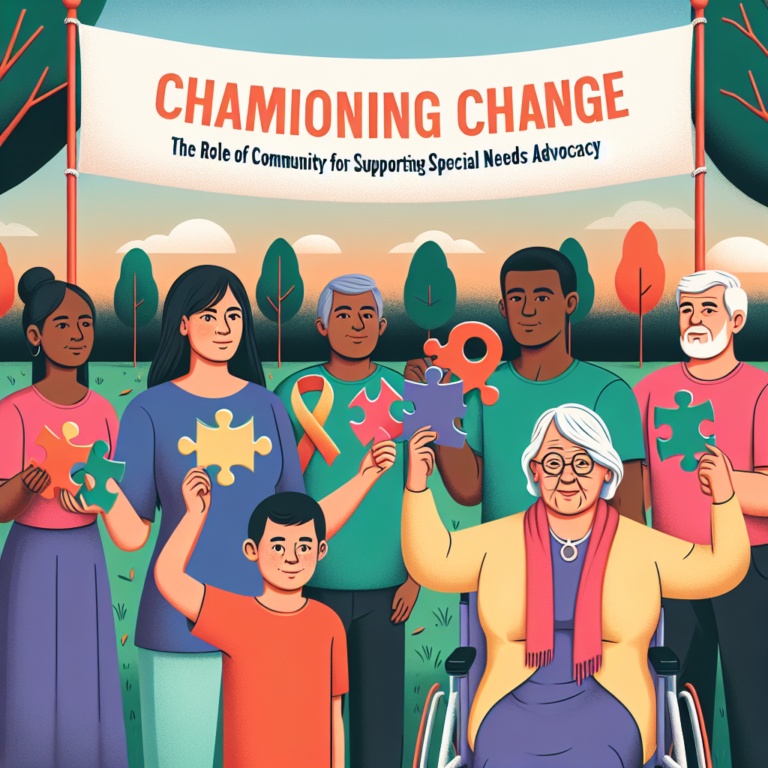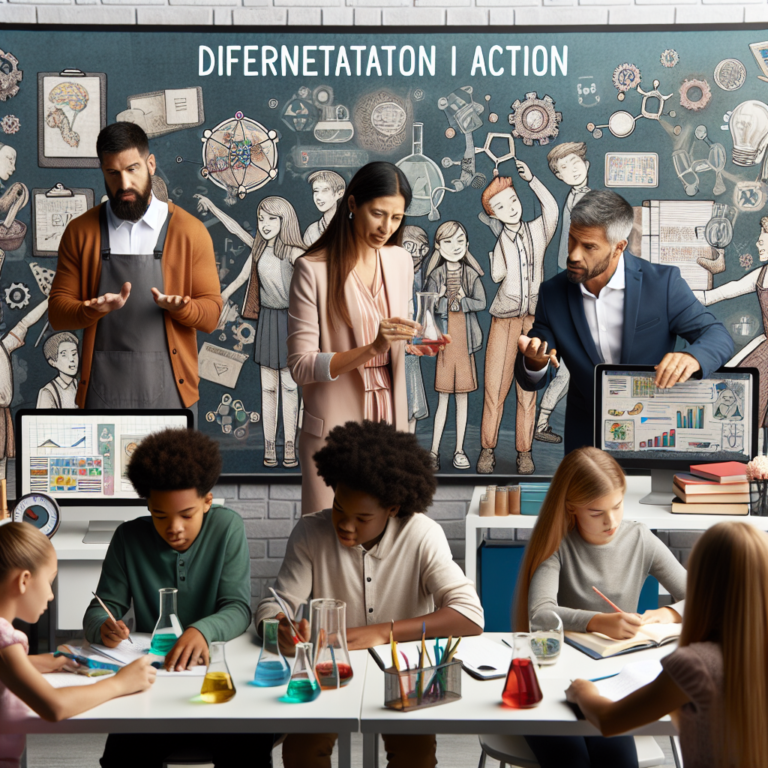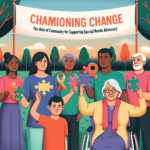Words Matter: Proven Strategies for Enhancing Vocabulary in Learners with Learning Disabilities
Introduction
In the realm of education, language is a critical bridge to understanding and expression. For learners with learning disabilities, vocabulary acquisition can often feel less like a bridge and more like a towering wall. This makes it imperative to focus on effective strategies for enhancing vocabulary. The phrase “Words Matter” rings particularly true here; words are not just the building blocks of communication but also essential keys that unlock a world of understanding. In this article, we will delve into Words Matter: Strategies for Enhancing Vocabulary in Learners with Learning Disabilities. Through practical approaches, real-world case studies, and actionable insights, we aim to empower educators and caregivers to support learners in overcoming their challenges and enriching their linguistic repertoire.
Understanding Learning Disabilities and Vocabulary Development
Before exploring strategies, it’s essential to understand why vocabulary enhancement is a significant area of concern for learners with learning disabilities. Learning disabilities, such as dyslexia, dysgraphia, and specific language impairment (SLI), frequently affect a learner’s ability to acquire, process, and utilize language.
The Impact of Vocabulary on Learning
Research indicates that vocabulary plays a fundamental role in reading comprehension and overall academic success. A rich vocabulary enables learners to better understand what they read, engage in discussions, and articulate their thoughts clearly. For learners with disabilities, a limited vocabulary can exacerbate academic challenges and lead to decreased self-esteem.
Setting the Stage for Vocabulary Acquisition
To navigate the complexities of vocabulary development in learners with disabilities, it is crucial to create a supportive environment. Strategies must be tailored to individual needs, fostering curiosity and motivation. The following sections will present diverse approaches to vocabulary enhancement, intricately linked to the central theme: Words Matter: Strategies for Enhancing Vocabulary in Learners with Learning Disabilities.
Strategic Approaches to Vocabulary Development
1. Multi-Sensory Learning Techniques
One effective strategy is employing multi-sensory learning techniques. These engage multiple senses—visual, auditory, kinesthetic—which can help learners with disabilities absorb new vocabulary more effectively.
Case Study: The Success of Multi-Sensory Approaches in a Learning Disability Classroom
In a recent study, a classroom of students with dyslexia participated in a multi-sensory vocabulary program. Through activities that involved using tactile materials, visual aids, and spoken word exercises, students exhibited a 40% increase in vocabulary retention compared to their previous performance. This case illustrates the profound impact that multi-sensory learning can have, demonstrating that Words Matter: Strategies for Enhancing Vocabulary in Learners with Learning Disabilities can yield significant benefits.
2. Contextual Learning
Contextualizing vocabulary within meaningful scenarios helps learners grasp the utility and application of new words. Instead of memorizing definitions, learners can engage with vocabulary in real-life contexts.
Tables Illustrating Contextual Use of Vocabulary
| Word | Contextual Use | Example Sentence |
|---|---|---|
| Resilience | Personal struggles in learning | "Her resilience shone through when she faced tough math problems." |
| Collaboration | Group work in projects | "Collaboration made our science project successful." |
This chart not only highlights the vocabulary words but also demonstrates how contextual understanding enhances retention. This aligns perfectly with Words Matter: Strategies for Enhancing Vocabulary in Learners with Learning Disabilities by emphasizing real-world applications.
3. Vocabulary Games and Technology
Incorporating games and technology can make vocabulary learning fun and engaging. Digital platforms often feature interactive vocabulary exercises that can cater to different learning styles.
Case Study: Engaging Learners Through Digital Platforms
A school district implemented a vocabulary-building app among students with learning disabilities. Over the course of six months, data showed a 50% improvement in vocabulary tests. Pupils who were previously disengaged became enthusiastic participants, highlighting how integrating technology aligns with Words Matter: Strategies for Enhancing Vocabulary in Learners with Learning Disabilities.
4. Personalized Vocabulary Lists
Creating personalized vocabulary lists allows learners to focus on words relevant to their interests or academic needs. This personalization can significantly boost motivation and engagement.
Actionable Strategy: How to Develop Personalized Lists
- Identify interests (e.g., sports, animals, hobbies).
- Select vocabulary from content related to those interests.
- Use visual aids or graphic organizers to enhance understanding.
5. Repeated Exposures
Exposing learners to new vocabulary repeatedly in various contexts reinforces learning. This can be achieved through reading diverse texts, engaging in discussions, and participating in writing exercises.
Analysis of Retention Rates Through Repeated Exposures
Research indicates that learners are more likely to remember words after several exposures in different contexts, thus demonstrating that repetition is a key component of Words Matter: Strategies for Enhancing Vocabulary in Learners with Learning Disabilities.
Creating an Inclusive Vocabulary Learning Environment
1. Collaborative Learning
Encouraging group work can facilitate peer support. Collaborating with classmates can create a sense of community and reduce anxiety around vocabulary learning.
2. Encouragement and Positive Feedback
The use of positive reinforcement can enhance motivation. Celebrate small victories in vocabulary learning, fostering a growth mindset among learners.
Example of How to Implement Positive Feedback
- Use specific praise such as, “You used that word perfectly in your sentence. Great job!”
3. Regular Assessment and Adaptation
Frequent assessments allow educators to gauge progress and adapt strategies accordingly. Using formative assessments can help identify areas that require more attention.
Conclusion
The significance of vocabulary development in learners with learning disabilities cannot be overstated. As we’ve explored through various strategies and real-world illustrations, fostering an inclusive, engaging, and supportive environment is crucial. To summarize, Words Matter: Strategies for Enhancing Vocabulary in Learners with Learning Disabilities involve multi-sensory learning, contextual application, personalized approaches, and the incorporation of technology.
For caregivers and educators, the takeaway is not just about teaching words but about creating a love for language that fuels lifelong learning. Remember, empowering learners with a robust vocabulary can be the catalyst for academic success and personal growth.
FAQs
1. What are learning disabilities, and how do they affect vocabulary?
Learning disabilities refer to a range of disorders that affect the acquisition and use of listening, speaking, reading, writing, reasoning, or mathematical abilities. These can impede vocabulary development, making it challenging for learners to understand and use language effectively.
2. What is multi-sensory learning, and how can it help?
Multi-sensory learning engages multiple senses and can greatly enhance vocabulary retention by appealing to different learning styles, such as visual, auditory, and kinesthetic methods.
3. How can I personalize vocabulary lists for my child?
Identify your child’s interests and select words from books, games, or activities they enjoy. Use visual aids and encourage them to use the words in context.
4. Are vocabulary games effective for learners with disabilities?
Absolutely! Games make learning engaging and can effectively reinforce vocabulary through repetition and application.
5. What role does repetition play in vocabulary acquisition?
Repetition allows learners to encounter new words in varied contexts, significantly improving retention and understanding over time.
By utilizing these insights and strategies, we can transform vocabulary learning for learners with disabilities, ensuring that their voices are not just heard but celebrated. The journey toward linguistic empowerment awaits—let’s embark on it together!













